Judi Lynn
Judi Lynn's JournalThe howling ghosts of colonialism haunt Haiti as violent anarchy and gang rule escalate
By Bryan Rostron
Bryan Rostron has lived and worked as a journalist in South Africa, Italy, New York and London. He has written for The New York Times, the London Sunday Times, The Guardian and The Spectator and was a correspondent for New Statesman. He is the author of the recently published ‘Lost on the Map: a memoir of colonial illusions’ (Bookstorm) and six previous books, including ‘Robert McBride: The Struggle Continues’ and the novels ‘My Shadow’ and ‘Black Petals’. He lives in Cape Town.
18 Mar 2024
There’s no more shocking proof of the lingering consequences of colonialism than the violent anarchy devastating Haiti. Brutal gangs now control most of the country.
This is the end result of European powers ruthlessly squeezing the tiny Caribbean republic dry — and the subsequent amnesia about a systematic crime against humanity, especially among the Western nations most implicated in that mobster-style extortion of a poor country: France and the United States.
What was once called Saint-Domingue was so profitable, producing 60% of the world’s coffee and 50% of its sugar, that it is estimated one in eight people in France depended on trade with that distant Caribbean colony.
But in 1804, after an astonishingly successful slave revolt, the world’s first black republic, Haiti, was declared. Clearly colonial powers felt that the shock of such a massive loss of revenue and the scandalous example of an independent black republic could not be tolerated. So they set in motion measures, right up to the 21st century, to crush such a show of independence.
The initial strike was the arrival in 1825 of a squadron of 15 French warships in the capital, Port-au-Prince. Faced with the bargaining power of 500 cannons, Haiti was forced to agree to pay 150 million francs in compensation for the loss of France’s profitable plantations and all their human chattels.
This debt, though later reduced to 90 million francs, was not paid off until 1947. In fact, it was a “double debt”, as to pay it off Haiti was compelled to take loans, at interest, from French banks — which also helped to finance the construction of the Eiffel Tower. By 1914, 80% of the Haitian government’s budget went to pay off this debt at the expense of an increasingly impoverished population.
In that same year, a United States warship anchored at Port-au-Prince, and a team of marines marched to the so-called Haitian National Bank, from where they removed gold reserves worth $500,000 (approximately $15-million today). This was taken back to New York “for safe-keeping”.
The following year the Americans invaded with the standard justification of “restoring order and maintaining stability”. That occupation lasted until 1934, and during some of those 19 years, more was spent from the national budget to pay the US officials enforcing the occupation than on the then two million population.
More:
https://www.dailymaverick.co.za/opinionista/2024-03-18-the-howling-ghosts-of-colonialism-haunt-haiti-as-violent-anarchy-and-gang-rule-escalate/
Milei invited to Miami to receive accolade from Jewish Community
Monday, March 18th 2024 - 10:17 UTC
Argentine President Javier Milei will travel to Miami during the second week of April to receive the “Ambassadors of Light” distinction from the local Jewish community, it was announced during the weekend. TTraveling with the head of state will be his sister and Presidential Secretary Karina Milei.
Milei will be bestowed with the decoration on April 10 during the opening of the “Menachem Mendel Schneerson” Center for “his tireless efforts for Israel and the global community” and “honoring his unwavering dedication to spreading freedom, hope, and positivity in the face of darkness.” The Argentine President is scheduled to give a speech calling for the Palestinian terrorist group Hamas to release all the hostages kidnapped on Oct. 7.
Also scheduled to attend the ceremony are Argentina's Ambassador to Washington DC Gerardo Werthein, and Rabbi Axel Wahnish, Buenos Aires' next Ambassador to Israel.
The presidential trip is planned for between April 8 and 11, according to Casa Rosada sources. While in the United States, Milei is also expected to hold a series of meetings with businessmen from the United States and Latin America who support his economic program and intend to invest in Argentina. However, the same sources ruled out a possible encounter with former US President Donald J. Trump despite the short distance between Miami and the latter's Mar o Lago residence. Trump will take on the incumbent Joseph Biden later this year in a bid to return to the White House.
After winning the Nov. 19 runoff and before his inauguration, Milei traveled to New York to visit the Ohel, the tomb of Rabbi Menachem Mendel Schneerson (1902-1994), recognized as the Lubavitch Rebbe. Menachem Mendel Schneerson was the seventh leader of the Chabad Lubavitch dynasty and is defined as “the greatest Jewish personality” because he took a small Hasidic group that almost disappeared with the Holocaust and transformed it into one of the most influential movements of religious Judaism.
More:
https://en.mercopress.com/2024/03/18/milei-invited-to-miami-to-receive-accolade-from-jewish-community
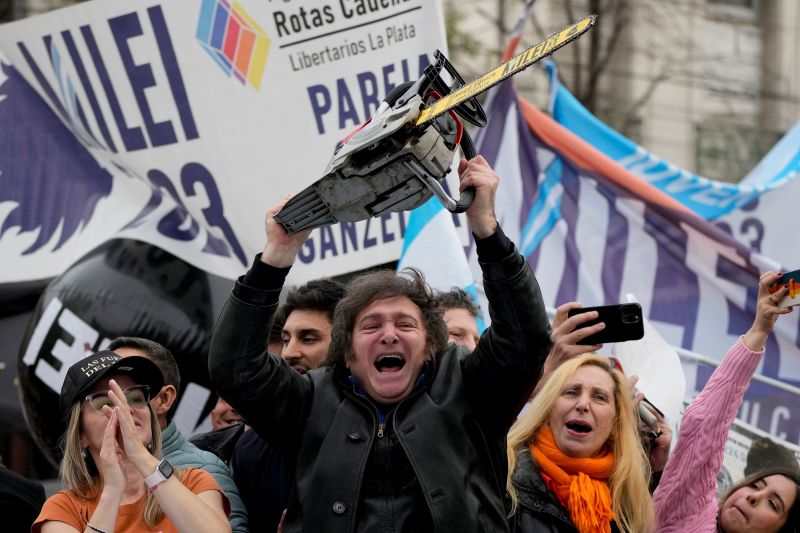
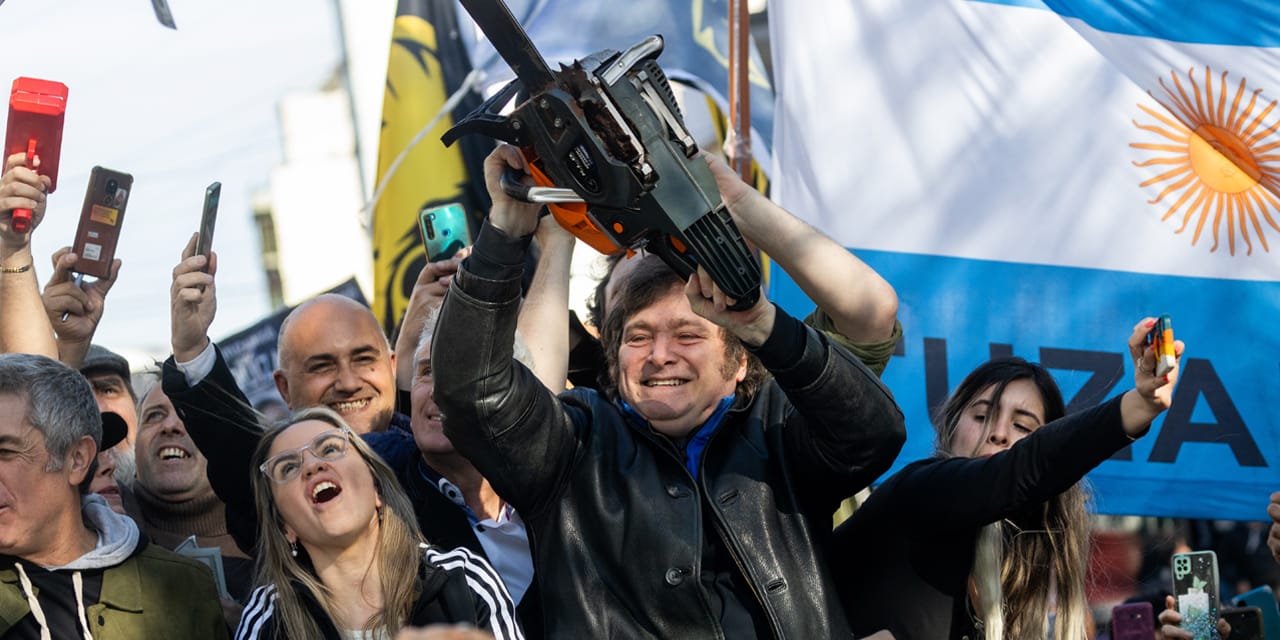
He should leave his chainsaw at home.
How the United States Fuels Militarization in Mexico
… and why an invasion is a terrible idea.
COMMENTARY
WORDS: JAMES CHABIN
PICTURES: ADAM JONES
DATE: MARCH 18, 2024
In the past year, prominent Republicans have made headlines for endorsing the use of United States military forces against drug cartels on Mexican territory. While many have pointed out the flaws in this plan, few have noticed that US influence has already made Mexico a more militarized country in recent years.
Between 2006 and 2021, the Mexican military took over 246 civil functions, including some in health, education, and social programming. The rate of military expansion into civil life has increased since 2018 under the administration of President Andrés Manuel López Obrador. In addition to an expanding footprint in domestic security, the military has been involved in managing ports of entry, developing infrastructure projects, and running the Maya Train.
Despite its prominence in domestic affairs, the Mexican military has come under scrutiny from human rights organizations for actions carried out on Mexican soil. According to Human Rights Watch, the military has tortured, executed, and arbitrarily detained civilians. In a particularly shocking case, the armed forces refused an order from López Obrador to turn over documents relating to the 2014 Ayotzinapa college student disappearance.
Corruption and impunity reach the highest levels of the Mexican military, as evidenced by the US authorities’ arrest of former Defense Minister Gen. Salvador Cienfuegos, who was exonerated in Mexico after López Obrador took exception to the US meddling in what he perceived to be domestic affairs.
More:
https://inkstickmedia.com/how-the-united-states-fuels-militarization-in-mexico/
Haiti's Proud Boys
Mar 18, 2024SLAVOJ ŽIŽEK
If we measure a failed state by the cracks in the edifice of its power, reflected in brewing ideological civil wars, deadlocked assemblies, and increasingly insecure public spaces, we must recognize that the United States is not so unlike Haiti. Both have given rise to violent gangs with political ambitions.
LJUBLJANA – The way things are going in Haiti, violent gangs might not only gain an official government role; they might actually become the government. Following the gangs’ seizure of critical infrastructure and the resignation of Prime Minister Ariel Henry, Haiti is exhibiting all the familiar features of a failed state. Its people are left with a tragic choice: continued rule by a corrupt “democratic” elite, or direct rule by gangs who present themselves as “progressive.”
With law and order having collapsed, CARICOM, the Caribbean regional intergovernmental organization, has announced an agreement to create a transitional council aimed at representing a wide swath of Haitian political and civil-society groupings. The council would wield some powers that typically belong to the (vacant) office of the president, including the power to name an interim prime minister. The resulting government would be expected eventually to hold elections, thus achieving a complete political reset.
But whom will these new arrangements include? Haiti has been under a state of emergency since armed groups attacked the country’s largest prison earlier this month, killing and injuring police and prison staff, and allowing nearly 4,000 inmates to escape. The gang leader Jimmy “Barbecue” Chérizier – himself a former police officer – took credit for the attack and called for the government to be overthrown. Gangs now control 80% of Haiti’s capital, Port-au-Prince, having seized the country’s main airport to block Henry’s return from a diplomatic mission to Kenya, where he was hoping to secure police reinforcements.
The CARICOM agreement bars anyone with prior criminal convictions or sanctions against them, thus disqualifying Chérizier. But Chérizier has long been known to harbor political aspirations. He is not only a gang leader but also a populist politician, telling an interviewer in 2019: “I would never massacre people in the same social class as me.” Earlier this month, he said: “We won’t lie to people, saying we have a peaceful revolution. We do not have a peaceful revolution. We are starting a bloody revolution in the country.”
Chérizier has likened himself to Martin Luther King, Jr., Malcolm X, Che Guevara, Fidel Castro, and even Robin Hood. But he also admires François “Papa Doc” Duvalier, the right-wing dictator who ruled Haiti with an iron fist from 1957 to 1971 (and who also terrorized Haitian society with armed paramilitary groups, led by the infamous Tonton Macoutes).
More:
https://www.project-syndicate.org/commentary/haiti-gangs-seizing-power-resemble-proud-boys-trump-effort-by-slavoj-zizek-2024-03
Brazil's Bolsonaro 'Not Afraid of Any Trial' Over Plot Accusations
March 16, 2024 9:27 PM
By Associated Press

FILE - Brazil's former President Jair Bolsonaro waves as he greets supporters at Salgado Filho International Airport as he arrives in Porto Alegre, Rio Grande do Sul, Brazil, June 22, 2023.
RIO DE JANEIRO —
Former Brazilian President Jair Bolsonaro said Saturday he was "not afraid of any trial," a day after documents released by the Supreme Court revealed that two top military leaders said the populist plotted to remain in power after losing the 2022 election.
Bolsonaro avoided commenting on the content of any of several investigations targeting him, but claimed he was a victim of "persecution" for causing trouble for the country's political left. Authorities in February confiscated Bolsonaro's passport.
"I could very well be in another country, but I decided to come back here at all costs. I'm not afraid of any trial, as long as the judges are impartial," Bolsonaro said in Rio de Janeiro, speaking at a campaign event in the city's mayoral race.
The court documents released Saturday included testimony from Bolsonaro's former army and air force commanders to police, who said they refused the former leader's demands and would arrest him if he tried to stay in power.
More:
https://www.voanews.com/a/brazil-s-bolsonaro-not-afraid-of-any-trial-over-plot-accusations-/7530999.html
Brazilian president warns democracy in danger due to fascism
People are offended ‘fascism, Nazism, rabid, ignorant, brute extreme right,’ says Luiz Inacio Lula da Silva
Sinan Doğan |
17.03.2024 - Update : 17.03.2024

Brazil's President Luiz Inacio Lula da Silva
BOGOTA, Colombia
Brazilian President Luiz Inacio Lula da Silva warned on Saturday that democracy in the world is in danger due to fascism.
He said democracy is in danger as people are offended by "fascism, Nazism, rabid, ignorant, brute extreme right.”
“Who is against the system today? Who criticizes everything? Is (President Javier) Milei in Argentina. He even wants the central bank to close. He wants to cut everything with a buzz-saw," Lula said at the announcement ceremony for the reconstruction of the Gaucho municipalities.
Arguing that far-right former President Jair Bolsonaro still does not accept defeat in the presidential election, Lula said Bolsonaro is not aware of how he lost.
More:
https://www.aa.com.tr/en/americas/brazilian-president-warns-democracy-in-danger-due-to-fascism/3166448
In Election by His Own Rules, Four-Fifths of Salvadorans Give Bukele a Second Term
Over 97 percent of Salvadorans in the U.S. voted for Nayib Bukele, who claimed a commanding electoral victory Sunday with over 80 percent of total votes. Opposition parties have been reduced to a minimum, capping an unconstitutional process totally controlled by the ruling party.
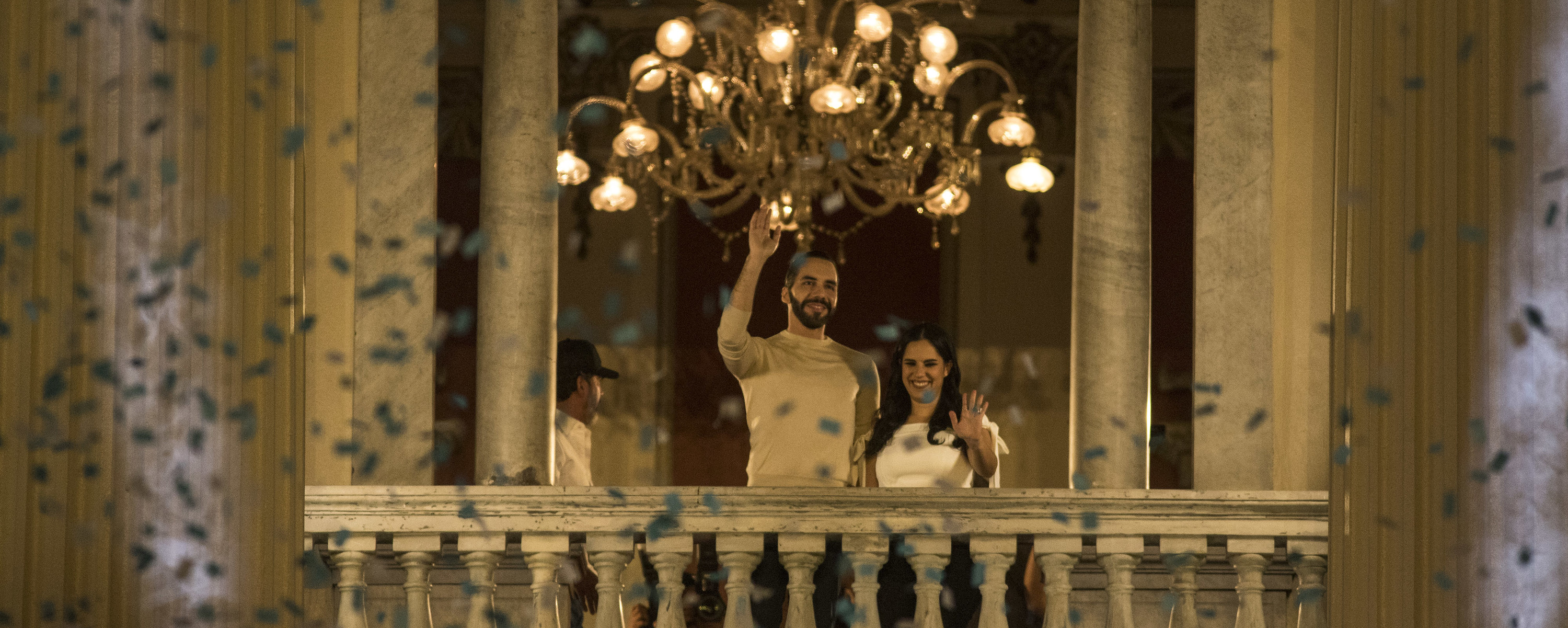
Carlos Barrera
Monday, February 5, 2024
Roman Gressier and José Luis Sanz
“According to our numbers, we have won the presidential election with more than 85 percent of votes, and a minimum of 58 out of 60 deputies in the Assembly.”
It was Nayib Bukele who broke the news over X at 6:56 on Sunday night: He won. By a stratospheric margin only seen in recent elections in Cuba, or Saddam Hussein’s Iraq.
It is fair to say, too, that in Guatemala in 1944, Juan José Arévalo, Bernardo Arevalo’s father, won with 86.3 percent.
The numbers reduce any partisan opposition to irrelevance in decision-making. And just as transcendentally, Bukele self-proclaimed victory without awaiting any official result.
Yesterday, the TSE that signed off on Bukele’s unconstitutional reelection bid had its worst performance since El Salvador recovered its democracy. Dozens of polling center volunteers reported that official computers were double- or triple-logging ballots, that paper was missing to make copies of the vote count, and that the heads of voting centers —most of them from ruling party Nuevas Ideas— kept the only copy.
More:
https://elfaro.net/en/202402/el_salvador/27235/in-election-by-his-own-rules-four-fifths-of-salvadorans-give-bukele-a-second-term
HONDURAS, 2009. LEGACY OF A COUP UNDER THE SHADOW, EPISODE 7, PART 2
(There is a podcast in this link. I just saw this episode today for the first time, and discovered the other episodes are available, as well. What they can do for anyone is provide an excellent review of US policy toward the Americas South of the border as it really happened, not as it was portrayed through the US corporate media. The people of the Americas are very keenly aware of what has been happening all these years, unless they identify with the predator class in each country. )The list of the other podcasts in the series is linked at the bottom of this post.
Police occupy the National Institute of Agrarian Reform in Tegucigalpa on September 30, 2009. Photo by YURI CORTEZ/AFP via Getty Images
POSTED IN UNDER THE SHADOW
HONDURAS, 2009. LEGACY OF A COUP | UNDER THE SHADOW, EPISODE 7, PART 2
Honduras’s return to democracy after the 2009 U.S.-backed coup is a heroic story of popular resistance.
In June 2009, Honduras faced a devastating coup that shattered the country’s fragile democracy and sunk the country into violence, repression, and a decade-long narco-dictatorship.
But the people fought back.
In this continuation of Episode 7, host Michael Fox looks at the fallout of the 2009 coup in Honduras, walking from 2009 into the present. He takes us to Tegucigalpa to dive into the fraudulent U.S.-backed elections that ushered in a narco-dictatorship, and also the resistance movement that, after years of struggle, ultimately did what it set out to do: remove the dictatorship and return democracy to Honduras.
This is Part 2 of a two-part episode looking at the 2009 coup in Honduras and the aftermath.
Under the Shadow is a new investigative narrative podcast series that walks back in time, telling the story of the past by visiting momentous places in the present.
In each episode, host Michael Fox takes us to a location where something historic happened — a landmark of revolutionary struggle or foreign intervention. Today, it might look like a random street corner, a church, a mall, a monument, or a museum. But every place he takes us was once the site of history-making events that shook countries, impacted lives, and left deep marks on the world.
Hosted by Latin America-based journalist Michael Fox.
This podcast is produced in partnership between The Real News Network and NACLA.
~ ~ ~ ~ ~ ~ ~ ~ ~ ~ ~
TRANSCRIPT
Michael Fox: Hi, I’m your host, Michael Fox.
Two things I want to say before we get started. First, today’s episode is Part 2 of Episode 7, where we look at the 2009 US-backed coup in Honduras. We ended up breaking this episode into two parts because there’s just so much to dig into here. If you haven’t listened to Part 1 yet, I suggest you go back and do that first. It’ll set the scene for everything we dive into today.
Second, many portions of today’s episode deal with harsh themes from the years following the 2009 coup in Honduras. If you’re sensitive to this, or you’re in the room with small children, you might want to consider another time to listen. OK. Here’s the show…
So the Brazilian embassy is down this this side street in this residential neighborhood, kind of a northern Tegucigalpa. You can tell that this is a spot with many embassies here because literally the street just adjacent to it is the Republic of Panama, and this one we’ve got Balboa Street, but on my Google Maps it actually says Brazil Brazil St.
And then these two-story buildings kind of go back. It’s behind this gate. So it almost looks like a gated gated neighborhood. Many of the, you know, it’s tree lined streets. Pretty, Quaint. You tell this has been kind of an upscale. Section of Tegucigalpa for a long time. Cars rumble back and forth. There’s a Chinese restaurant right here. That can actually smell the Chinese food from where I’m standing. Just half a block away from the Brazilian embassy behind this fence. And it was here that Manuel Zelaya was was holed up. For months.
Four months total. Back in late 2009, there was a constant line of state security forces outside the embassy. Meanwhile, Zelaya, his wife, Xiomara Castro, and their daughter lived in the cramped two-story home, alongside four dozen embassy workers.
It’s really wild being here because a lot of the different episodes that I’ve been working on are things that happened way in the past. But right here, was the 2009 was the coup against Manuel Zelaya. I remember this moment. I was following what was happening very, very closely from Brazil. Had friends on the ground. And so it’s really strange to be here now and to see this up close and be thinking of this as history, because it’s so present. It’s still so present, right?
Zelaya arrived at the Brazilian Embassy in September 2009, returning from exile in Costa Rica. The calculation at the time was that Zelaya’s return would keep the spotlight on Honduras and the internationally condemned coup that removed him from power three months earlier.
More:
https://therealnews.com/honduras-2009-legacy-of-a-coup-under-the-shadow-episode-7-part-2
~ ~ ~ ~ ~ ~ ~ ~ ~ ~ ~ ~ ~ ~ ~ ~ ~
Under the Shadow
A podcast on US intervention and revolutionary resistance in Latin America, and all the ghosts that still linger, from independent journalist Michael Fox. Co-produced by The Real News Network and NACLA (North American Congress on Latin America).
https://www.spreaker.com/podcast/under-the-shadow--5958129
Hondurans cheer a rare win over their corrupt politicians, far from home
A US court convicts former right-wing President Juan Orlando Hernandez of narco-trafficking.
By Jared Olson
Published On 11 Mar 2024
11 Mar 2024
New York City, New York – The defendant, greying and pale after two years in a jail cell, lowered his head in a final prayer as the verdict was read.
For almost three weeks, defence lawyers for former Honduran President Juan Orlando Hernandez had tried to persuade jurors in a federal courtroom here that the state’s witnesses of convicted drug traffickers and murderers were liars and their testimony – that they operated under the former president’s protection as part of a “narco-state” – was untrustworthy.
But Hernandez’s prayers would go unanswered and his attorneys’ words unheeded as jurors found the ex-president guilty on all three counts of drugs and weapons charges, concluding a fall from grace so epic that it mirrors that of late Panamanian President Manuel Antonio Noriega, who was convicted 32 years ago in a federal courthouse in Miami of accepting millions of dollars in bribes from the Medellin drug cartel.
Like Noriega, Hernandez was once a staunch United States ally in its “War on Drugs”. Representing a deeply conservative Honduran political party, Hernandez portrayed himself as a law and order candidate in his 2013 presidential campaign, promising to reduce the flow of illegal drugs into the country and the violence that stemmed from it.
He did neither, according to the Honduran people, and instead ushered in a period of state repression targeting dissidents and the country’s Indigenous and Afro-Caribbean population, the most notable of whom was the environmental activist Berta Caceres, who was assassinated in 2016 by a local business executive with ties to the government.
More:
https://www.aljazeera.com/news/2024/3/11/hondurans-cheer-a-rare-win-over-their-corrupt-politicians-far-from-home
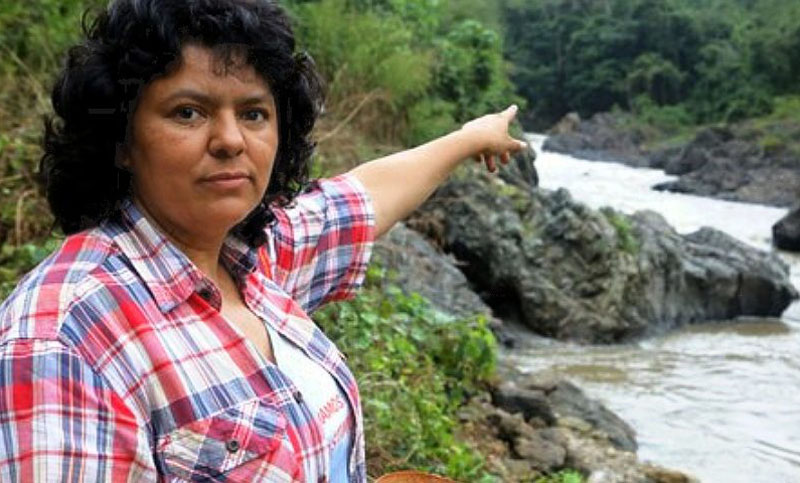
Berta Cáceres, murdered by Honduran oligarchs, cherished, respected by Honduran citizens.
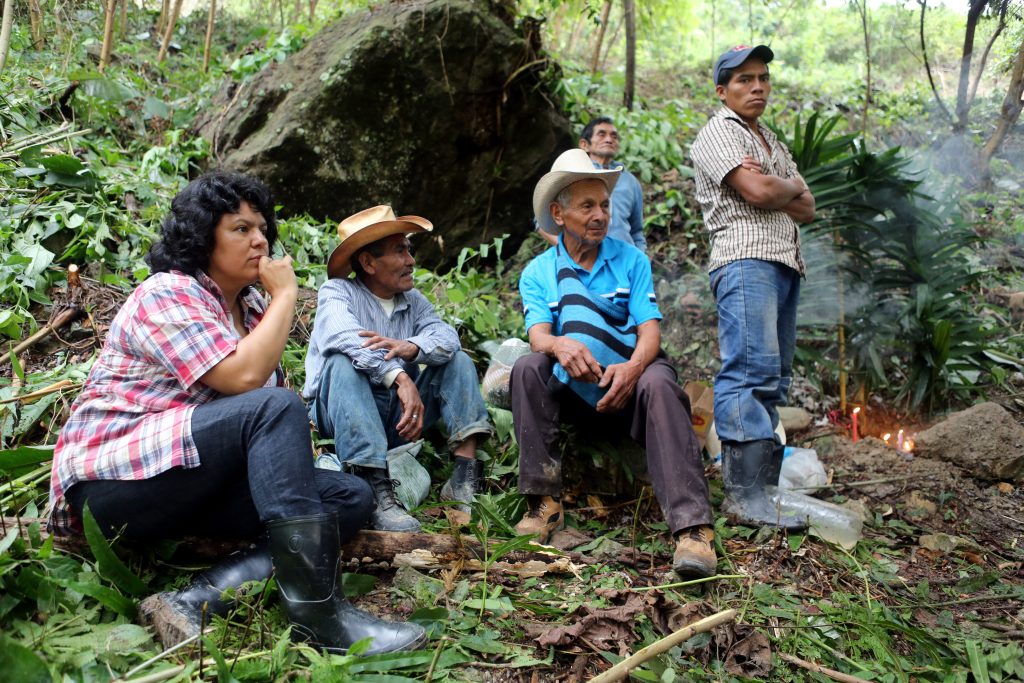
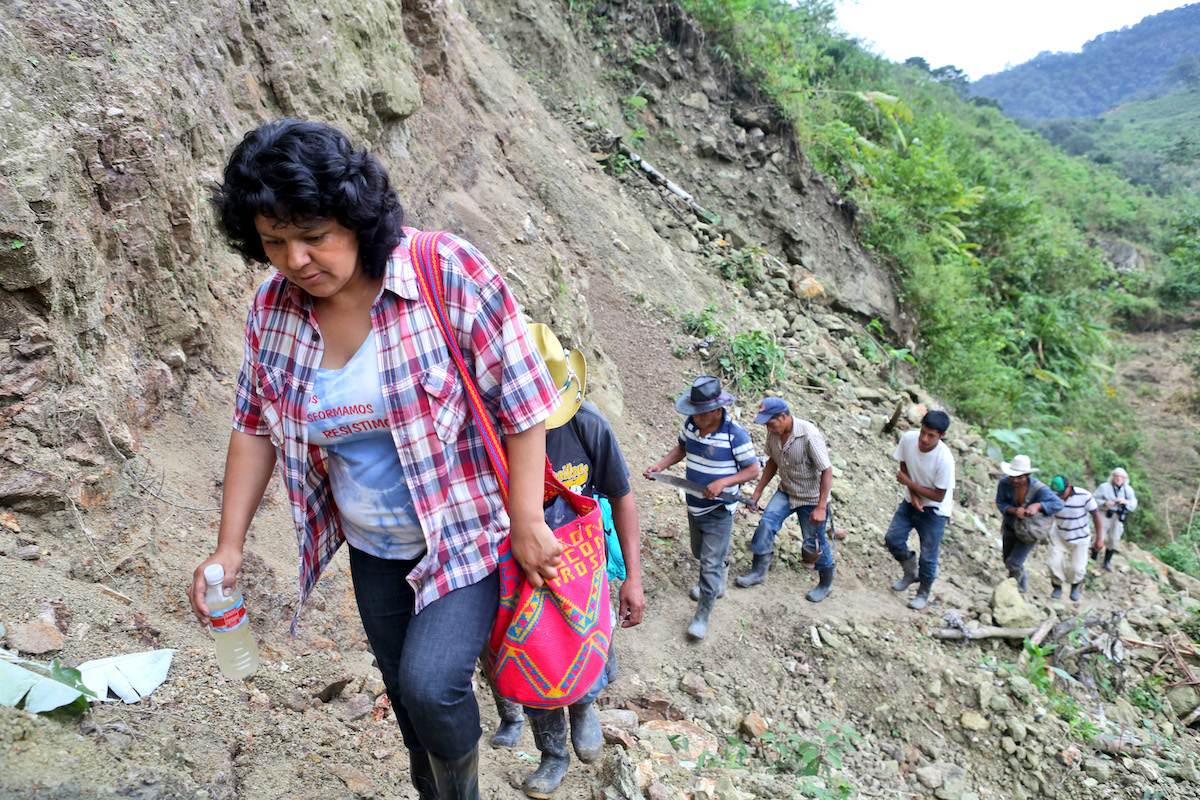
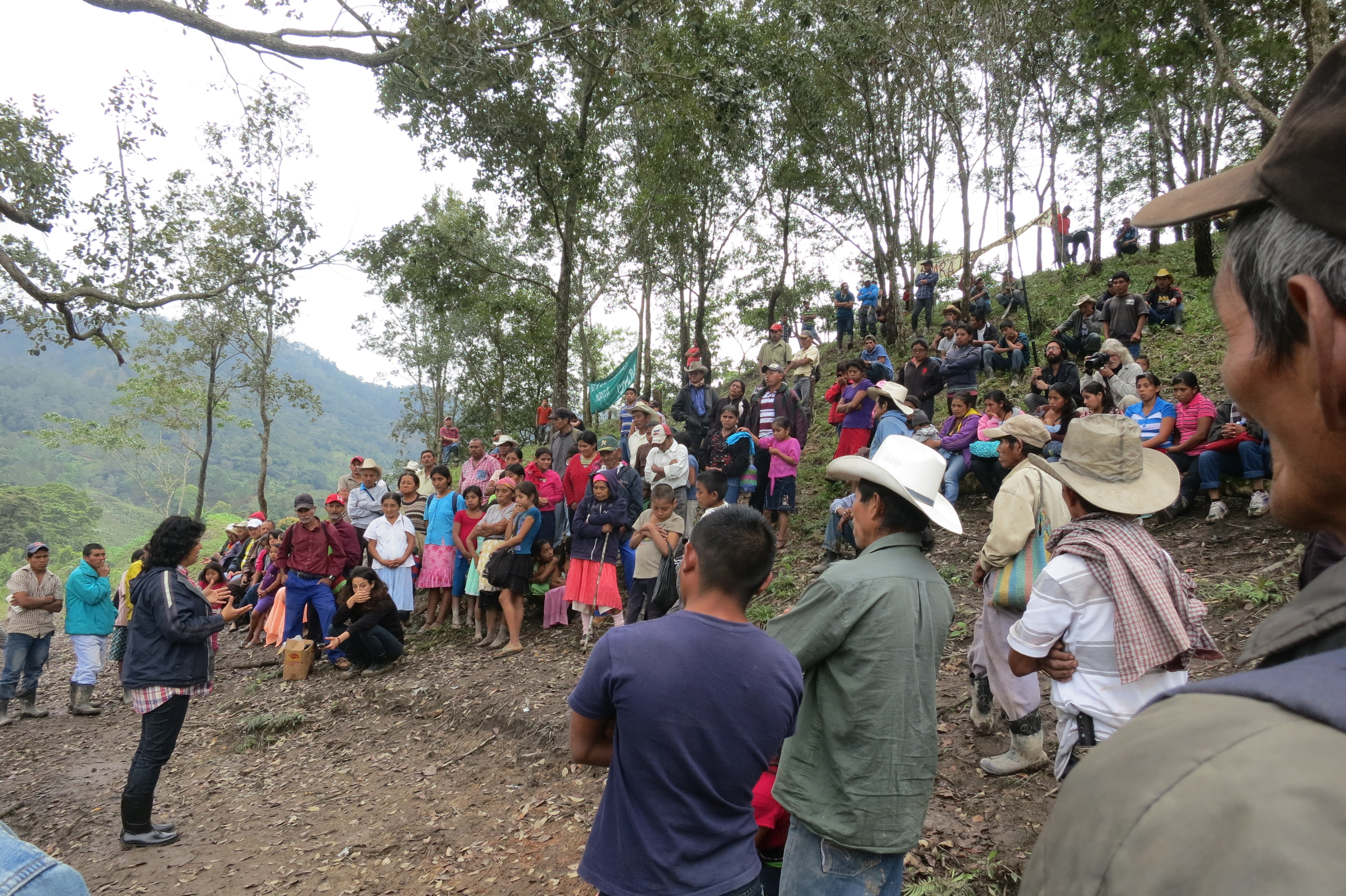


Brazil's Supreme Court Justices: Amnesty for Bolsonaro Illegal, Predicted to Fail
Former congressman Daniel Silveira's pardon veto reinforces view that crimes against democracy aren't eligible for benefits
Mar.4.2024 1:30PM
Matheus Teixeira
BRASÍLIA
Supreme Court (STF) justices assert behind the scenes that there is no chance for a possible amnesty for Jair Bolsonaro (PL) or those convicted for involvement in the January 8 attacks to be valid and implemented to absolve the former president and his allies from potential trial in the court.
In private conversations, justices assess that the former president's proposal for Congress to approve such a measure is another tool to rally the Bolsonaro base and pressure the court. They say that an amnesty, even if approved by Congress, would have no practical effect because it would surely be annulled by the Supreme Court.
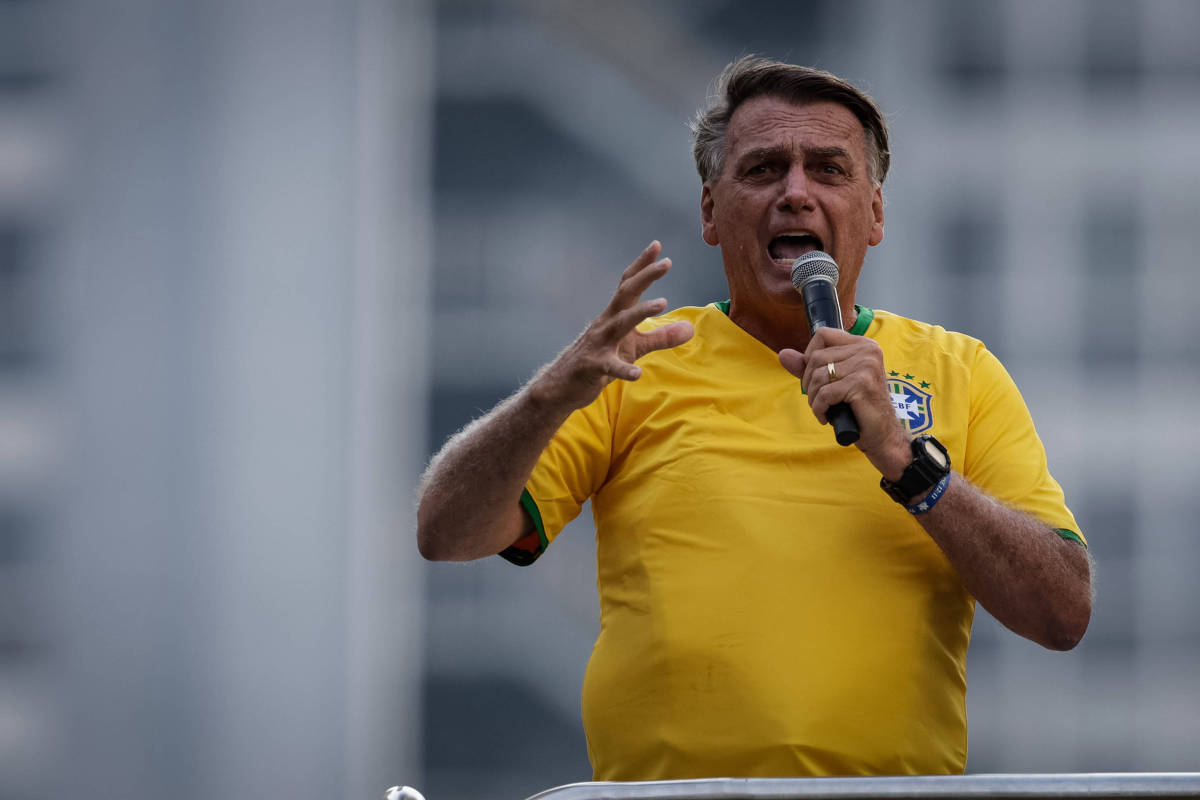
São Paulo, SP, BRASIL, 25/02/2024: Pro-Bolsonaro Rally on Avenida Paulista (Foto: Bruno Santos/ Folhapress)
Supreme Court members assert privately that the precedent set in the annulment of the pardon granted to former congressman Daniel Silveira is a parameter to analyze the case and indicate that the court would have a comfortable majority to invalidate an amnesty.
At the time, the court decided that crimes against democracy are not eligible for amnesty, clemency, or pardon.
Thus, Bolsonaro could be granted amnesty in a congressional project regarding the investigation of the jewels and the forgery of a vaccination document, for example, but not in the case investigating a plot to impose a coup d'état to prevent President Lula (PT) from taking office after the 2022 elections.
https://www1.folha.uol.com.br/internacional/en/brazil/2024/03/brazils-supreme-court-justices-amnesty-for-bolsonaro-illegal-predicted-to-fail.shtml
Profile Information
Member since: 2002Number of posts: 160,525